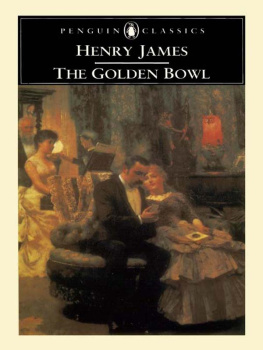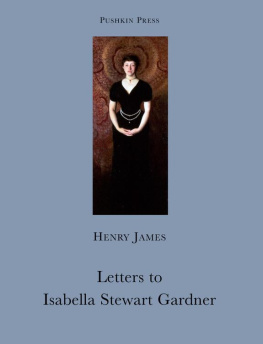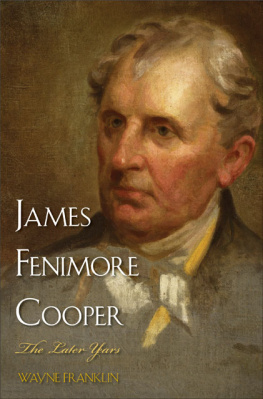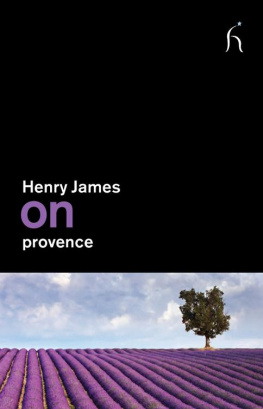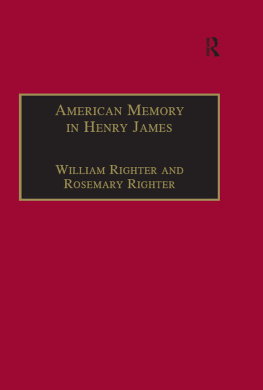Henry James - The American Scene
Here you can read online Henry James - The American Scene full text of the book (entire story) in english for free. Download pdf and epub, get meaning, cover and reviews about this ebook. year: 2011, publisher: Barnes & Noble, genre: Detective and thriller. Description of the work, (preface) as well as reviews are available. Best literature library LitArk.com created for fans of good reading and offers a wide selection of genres:
Romance novel
Science fiction
Adventure
Detective
Science
History
Home and family
Prose
Art
Politics
Computer
Non-fiction
Religion
Business
Children
Humor
Choose a favorite category and find really read worthwhile books. Enjoy immersion in the world of imagination, feel the emotions of the characters or learn something new for yourself, make an fascinating discovery.
- Book:The American Scene
- Author:
- Publisher:Barnes & Noble
- Genre:
- Year:2011
- Rating:3 / 5
- Favourites:Add to favourites
- Your mark:
- 60
- 1
- 2
- 3
- 4
- 5
The American Scene: summary, description and annotation
We offer to read an annotation, description, summary or preface (depends on what the author of the book "The American Scene" wrote himself). If you haven't found the necessary information about the book — write in the comments, we will try to find it.
Though best known as a novelist, James also wrote non-fiction, including this controversial 1907 account of his 1905-06 American tour. By 1905 he had lived in England for twenty-five years, and it is as a returning expatriate that James views the country of his birthand finds much to criticize in its embrace of crass materialism.
The American Scene — read online for free the complete book (whole text) full work
Below is the text of the book, divided by pages. System saving the place of the last page read, allows you to conveniently read the book "The American Scene" online for free, without having to search again every time where you left off. Put a bookmark, and you can go to the page where you finished reading at any time.
Font size:
Interval:
Bookmark:
HENRY JAMES

This 2011 edition published by Barnes & Noble, Inc.
All rights reserved. No part of this publication may be reproduced, stored in a retrieval system, or transmitted, in any form or by any means, electronic, mechanical, photocopying, recording, or otherwise, without prior written permission from the publisher.
Barnes & Noble, Inc.
122 Fifth Avenue
New York, NY 10011
ISBN: 978-1-4114-3823-1
CONTENTS
PREFACE
T HE following pages duly explain themselves, I judge, as to the Author's point of view and his relation to his subject; but I prefix this word on the chance of any suspected or perceived failure of such references. My visit to America had been the first possible to me for nearly a quarter of a century, and I had before my last previous one, brief and distant to memory, spent other years in continuous absence; so that I was to return with much of the freshness of eye, outward and inward, which, with the further contribution of a state of desire, is commonly held a precious agent of perception. I felt no doubt, I confess, of my great advantage on that score; since if I had had time to become almost as "fresh" as an inquiring stranger, I had not on the other hand had enough to cease to be, or at least to feel, as acute as an initiated native. I made no scruple of my conviction that I should understand and should care better and more than the most earnest of visitors, and yet that I should vibrate with more curiosityon the extent of ground, that is, on which I might aspire to intimate intelligence at allthan the pilgrim with the longest list of questions, the sharpest appetite for explanations and the largest exposure to mistakes.
I felt myself then, all serenely, not exposed to grave mistakesthough there were also doubtless explanations which would find me, and quite as contentedly, impenetrable. I would take my stand on my gathered impressions, since it was all for them, for them only, that I returned; I would in fact go to the stake for themwhich is a sign of the value that I both in particular and in general attach to them and that I have endeavored to preserve for them in this transcription. My cultivated sense of aspects and prospects affected me absolutely as an enrichment of my subject, and I was prepared to abide by the law of that sensethe appearance that it would react promptly in some presences only to remain imperturbably inert in others. There would be a thousand mattersmatters already the theme of prodigious reports and statisticsas to which I should have no sense whatever, and as to information about which my record would accordingly stand naked and unashamed. It should unfailingly be proved against me that my opportunity had found me incapable of information, incapable alike of receiving and of imparting it; for then, and then only, would it be clearly enough attested that I had cared and understood.
There are features of the human scene, there are properties of the social air, that the newspapers, reports, surveys and blue-books would seem to confess themselves powerless to "handle," and that yet represented to me a greater array of items, a heavier expression of character, than my own pair of scales would ever weigh, keep them as clear for it as I might. I became aware soon enough, on the spot, that these elements of the human subject, the results of these attempted appreciations of life itself, would prove much too numerous even for a capacity all given to them for some ten months; but at least therefore, artistically concerned as I had been all my days with the human subject, with the appreciation of life itself, and with the consequent question of literary representation, I should not find such matters scant or simple. I was not in fact to do so, and they but led me on and on. How far this might have been my several chapters show; and yet even here I fall short. I shall have to take a few others for the rest of my story.
H. J.
September 28, 1906.
I
NEW ENGLAND
AN AUTUMN IMPRESSION
C ONSCIOUS that the impressions of the very first hours have always the value of their intensity, I shrink from wasting those that attended my arrival, my return after long years, even though they be out of order with the others that were promptly to follow and that I here gather in, as best I may, under a single head. They referred partly, these instant vibrations, to a past recalled from very far back; fell into a train of association that receded, for its beginning, to the dimness of extreme youth. One's extremest youth had been full of New York, and one was absurdly finding it again, meeting it at every turn, in sights, sounds, smells, even in the chaos of confusion and change; a process under which, verily, recognition became more interesting and more amusing in proportion as it became more difficult, like the spelling-out of foreign sentences of which one knows but half the words. It was not, indeed, at Hoboken, on emerging from the comparatively assured order of the great berth of the ship, that recognition was difficult: there, only too confoundingly familiar and too serenely exempt from change, the waterside squalor of the great city put forth again its most inimitable notes, showed so true to the barbarisms it had not outlived that one could only fall to wondering what obscure inward virtue had preserved it. There was virtue evident enough in the crossing of the water, that brave sense of the big, bright, breezy bay; of light and space and multitudinous movement; of the serried, bristling city, held in the easy embrace of its great good-natured rivers very much as a battered and accommodating beauty may sometimes be "distinguished" by a gallant less fastidious, with his open arms, than his type would seem to imply. But what was it that was still holding together, for observation, on the hither shore, the same old sordid facts, all the ugly items that had seemed destined so long ago to fall apart from their very cynicism?the rude cavities, the loose cobbles, the dislodged supports, the unreclaimed pools, of the roadway; the unregulated traffic, as of innumerable desperate drays charging upon each other with tragic long-necked, sharp-ribbed horses (a length and a sharpness all emphasized by the anguish of effort); the corpulent constables, with helmets askew, swinging their legs, in high detachment, from coigns of contemplation; the huddled houses of the other time, red-faced, off their balance, almost prone, as from too conscious an affinity with "saloon" civilization.
It was, doubtless, open to the repentant absentee to feel these things sweetened by some shy principle of picturesqueness; and I admit that I asked myself, while I considered and bumped, why what was "sauce for the goose" should not be in this case sauce for the gander; and why antique shabbiness shouldn't plead on this particular waterside the cause it more or less successfully pleads on so many others. The light of the September day was lovely, and the sun of New York rests mostly, with a laziness all its own, on that dull glaze of crimson paint, as thick as on the check of the cruder coquetry, which is, in general, beneath its range, the sign of the old-fashioned. Yes; I could remind myself, as I went, that Naples, that Tangiers or Constantinople has probably nothing braver to flaunt, and mingle with excited recognition the still finer throb of seeing in advance, seeing even to alarm, many of the responsibilities lying in wait for the habit of headlong critical or fanciful reaction, many of the inconsistencies in which it would probably have, at the best, more or less defiantly to drape itself. Such meditations, at all events, bridged over alike the weak places of criticism and some of the rougher ones of my material passage. Nothing was left, for the rest of the episode, but a kind of fluidity of appreciationa mild, warm wave that broke over the succession of aspects and objects according to some odd inward rhythm, and often, no doubt, with a violence that there was little in the phenomena themselves flagrantly to justify. It floated me, my wave, all that day and the next; so that I still think tenderlyfor the short backward view is already a distance with "tone"of the service it rendered me and of the various perceptive penetrations, charming coves of still blue water, that carried me up into the subject, so to speak, and enabled me to step ashore. The subject was everywherethat was the beauty, that the advantage: it was thrilling, really, to find one's self in presence of a theme to which everything directly contributed, leaving no touch of experience irrelevant. That, at any rate, so far as feeling it went; treating it, evidently, was going to be a matter of prodigious difficulty and selectionin consequence of which, indeed, there might even be a certain recklessness in the largest surrender to impressions. Clearly, however, these were not for the presentand such as they wereto be kept at bay; the hour of reckoning, obviously, would come, with more of them heaped up than would prove usable, a greater quantity of vision, possibly, than might fit into decent form; whereby, assuredly, the part of wisdom was to put in as much as possible of one's recklessness while it was fresh.
Font size:
Interval:
Bookmark:
Similar books «The American Scene»
Look at similar books to The American Scene. We have selected literature similar in name and meaning in the hope of providing readers with more options to find new, interesting, not yet read works.
Discussion, reviews of the book The American Scene and just readers' own opinions. Leave your comments, write what you think about the work, its meaning or the main characters. Specify what exactly you liked and what you didn't like, and why you think so.




